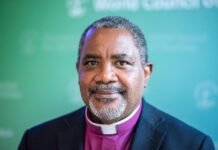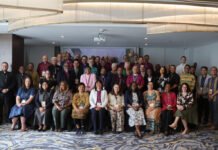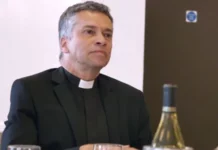29 June 2020
Statement from Bishop Stephen
“Ten years ago I was approached about a safeguarding allegation regarding a priest. I was able to see the survivor and begin to hear what was a difficult and harrowing story. However, I was moving between roles at the time and although I did speak with colleagues about the actions that needed to be taken, I failed to ensure that these were properly documented and followed through in the way I would expect. Now that I have discovered that this incident was not followed up as it should have been, I am deeply distressed and extremely sorry. Because this has recently come to light, I am both thankful that it is being addressed properly now, but also mindful that in my new position as Archbishop of York it is absolutely essential that I am open and transparent about the need for the whole of our church to be scrupulously honest with each other about any failings in safeguarding.
“In the past, the Church of England has been too quick to protect its own reputation and slow to admit its failings. This must change. Those in public office should be subject to scrutiny. Good safeguarding is an absolute priority for the Church of England and for me personally.
“In the diocese of Chelmsford where I have served for the past 10 years, I have been helped by survivors I have worked with as well as a first rate safeguarding team to have a much greater understanding of why safeguarding itself is so important and how we must be prepared to confront our failings and learn from them. Therefore, although I am embarrassed that I did not follow this up as scrupulously as I should have done 10 years ago, I want to go on the record about what has happened in order to demonstrate a new spirit of openness and transparency over how we ensure that the church is as safe as it can be, that survivors are listened to and dealt with honestly, and perpetrators brought to justice.”
Statement from Archbishop Justin
“I have been fully briefed on this matter and have read the independent legal advice. I have also spoken at length with Stephen. He clearly should have informed the authorities and made fuller notes of what he did in this case. He has shown humility in immediately admitting he failed to act as he should have done in this case, when the matter was raised with him by the NST this year. He has also said so publicly. I am also reassured that he did refer it on and saw the significance of offering support and contacting the survivor who must always be the priority. While I cannot comment further on this case, our IICSA hearings have shown the journey the Church is still on to be a safer place for all and I pray that this experience will strengthen his commitment to safeguarding and ministry as the Archbishop of York.
“I am looking forward to working with Stephen and we commit ourselves to continue to learn lessons and to recognise and accept we all need to be open and forthright in striving to make the church a safe place for all. This means listening to survivors and constantly examining our own actions and recognising our vulnerability as well as calling on all to demonstrate our commitment to care for all.”
Statement from National Safeguarding Team
“Concerns were referred to the National Safeguarding Team, NST, earlier this year about the handling of a case by Bishop Stephen 10 years ago after information came to light from a clergy file. The concerns raised were about the action taken following allegations of domestic abuse perpetrated by a parish priest. At the time Bishop Stephen responded to the survivor, offered support and subsequently referred the allegation within the diocese, but did not ensure the matter was referred to the statutory authorities or directly to the diocesan safeguarding adviser. The NST has now investigated the matter, taken independent advice and interviewed Bishop Stephen.
“He has shown insight and humility in accepting that he failed to act as he should have done in relation to a serious matter and acknowledged his own ability to fully recognise and respond to safeguarding concerns in 2010 was compromised by a lack of training and understanding, which he has subsequently sought to address.
“The NST investigation concluded that he posed no current risk of not responding appropriately to safeguarding disclosures and that informal action was a reasonable and proportionate response to the case.”




It appears +Cotterell may have issues of his own to deal with.